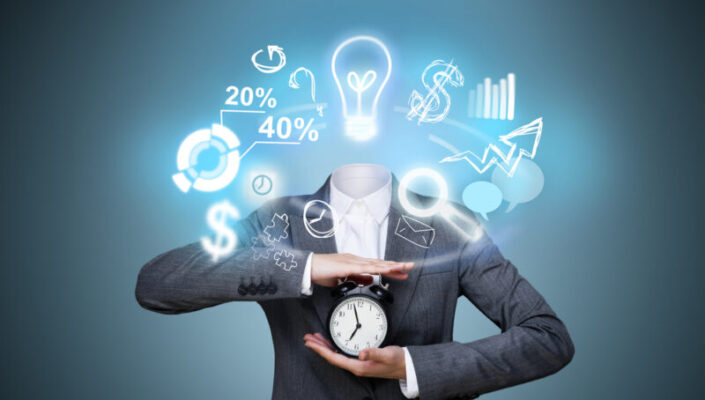Artificial intelligence and machine learning are spreading like wildfire in all areas of human life and development. Many industries are beginning to thrive thanks to AI, and the same goes for the economy.
Still, we’re only at the start of the age of AI, which is going to bring significant changes to all areas. Some countries are far ahead in the AI game, while others can’t compete due to a lack of resources and other limitations.
Read our guide to learn how AI will improve the economy, what are the possible concerns we should have about it, and what are the best solutions for its implementation.
The Age of Artificial Intelligence
Artificial intelligence is not only getting more accepted, but it is also becoming cheaper to use. Machine learning developers are gaining new tools and databases which results in more efficient implementation of their solutions. That translates into more cost and time-effective problem-solving.
Thanks to technological advances, fewer resources need to be allocated to AI to be performing at maximum capacity, e.g. the computing power is easier to maintain. What used to be part of Sci-Fi movies and fiction is now within our grasp. Industry leaders like Tesla are seizing opportunities to expand in the AI industry which is still new. Self-driving cars are just one of many great examples of how AI can replace human input, or at least make it less needed.
Many companies, for example, Wizata, recognized the application of AI in the field of work.
We’re constantly getting new AI solutions and inventions, which are bound to affect every aspect of our life, including the global economy.
The Concrete Ways AI Will Improve the Economy
AI will surely bring a lot of good to humankind, and there are way too many ways it will affect something as important as the world economy. Some of the major things it will change are:
Machine-Assisted Workforce
AI will greatly alleviate the human responsibilities and effort put into manufacturing and other industries. Instead of working hard, we will be able to work smart. Humans won’t need to do physical or menial tasks, and most processes will be simplified with AI. At first, human monitoring will be mandatory, but in the somewhat near future, AI automatization might become self-sufficient.
AI will directly impact areas such as development and research, but it will also make existing processes more precise, efficient, and practical. Repetitive tasks will be left to the AI, while humans will be able to create more value with other, more demanding activities. The results will be evident, some of the most important ones being improved cost-efficiency and reducing the number of workers necessary for various tasks.
Personalization of Production Processes, but Also Products and Services
The previous point is usually what comes to mind when we ask how will AI improve the economy, but personalization shouldn’t be disregarded. AI will make routine processes manageable by fewer workers, reducing costs, but also creating opportunities for mass production.
Since the products or services provided will be personalized, the demand will skyrocket too, meaning the chain of supply and demand will greatly expand. You don’t need to be an expert in economics to realize this will result in increased profits and boost the global economy.
Improved Resource Management
The circular economy (economy that targets cost-efficiency, and prevents wasting resources) will be greatly impacted by AI. New methods of production, designs, components, and materials will stem from extensive AI use and machine learning. AI makes research and prototyping much faster, and it helps test the newly engineered prototypes.
AI can also analyze data from the existing products, and help improve the predictions of prices and costs maintenance, managing tools and inventory, etc. Artificial intelligence will greatly impact the entire logistic process of companies, finding and overriding its flaws and weaknesses, of course, with some human input and decision-making based on the collected data.
Possible Problems With AI and How To Solve Them
AI still cannot make its own decisions in choosing the correct theories or their application, however, it has a clear advantage over any human, it is unbiased. The solutions it comes up with are purely statistical, data-driven, and objective.
As such, AI might bring much-needed economic advances and lead us to new approaches which were previously unfathomable. To some extent, AI will work independently, without monitoring, which will result in cost-effectiveness. If AI is to create economic solutions, and people are in disagreement of its computing, perhaps democratic voting on the matter could resolve the newly presented issues.
Note that the implementation of AI in major economic processes cannot be done overnight. There is no shortcut to improving the economy, but as technology advances faster than ever before, AI is bound to make a clear impact very soon.
Machine learning has unlimited potential at far lower costs than hiring a team of expert economists, and surely, AI will resolve many important questions and difficulties humans are currently struggling with. However, nobody knows the exact time when this will occur.
The Takeaway
AI is already affecting the economy, but its impact will only become greater with time. Artificial intelligence has great potential, but its utilization is far from its maximum point. Once AI becomes prevalent in some of the leading world economies, it will further widen the gaps between countries. Global economic titans are surely going to utilize AI faster than the rest of the world.
Governments and corporations are bound to regulate the implementation and use of AI, ensuring it is fair, justified, and ethical. AI cannot replace the human worker, but it can make jobs in every industry easier and more effective, especially if it is economy-related.
Author bio
Travis Dillard is a business consultant and an organizational psychologist based in Arlington, Texas. Passionate about marketing, social networks, and business in general. In his spare time, he writes a lot about new business strategies and digital marketing for Finddigitalagency.
Read Dive is a leading technology blog focusing on different domains like Blockchain, AI, Chatbot, Fintech, Health Tech, Software Development and Testing. For guest blogging, please feel free to contact at readdive@gmail.com.





